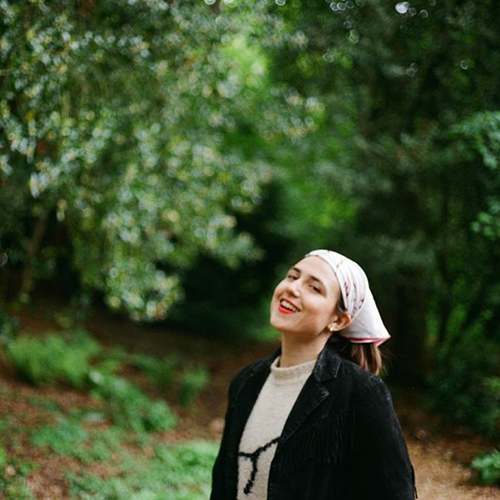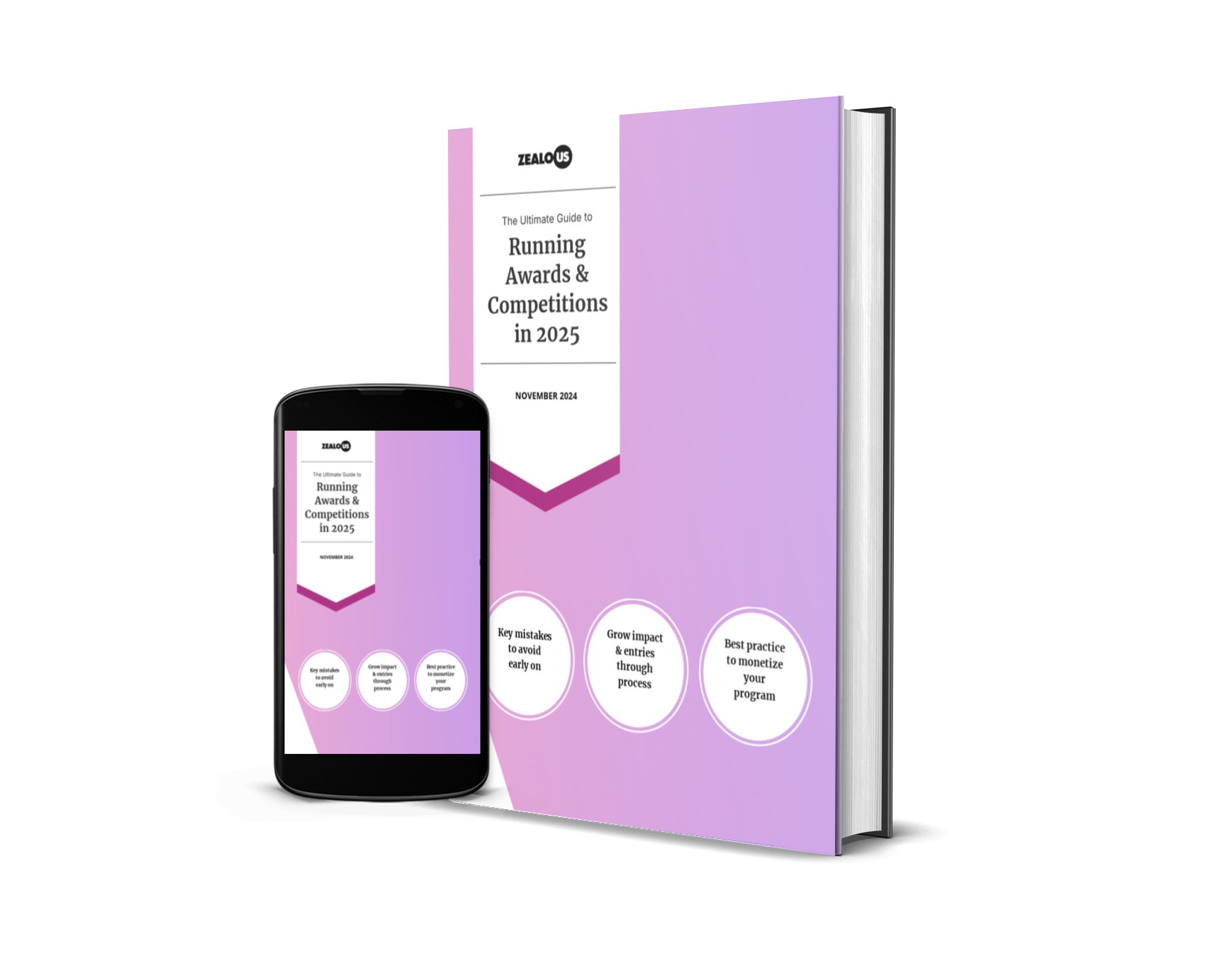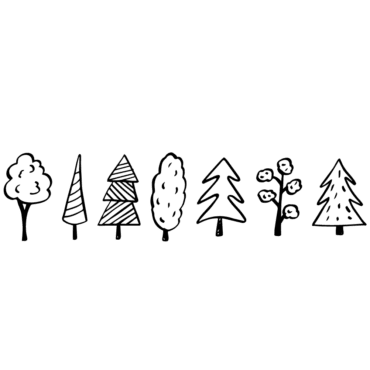Written between lectures and assignments at university, as well as a busy social life, her winning short story Burial Rites tackles themes of grief, loss and infidelity.
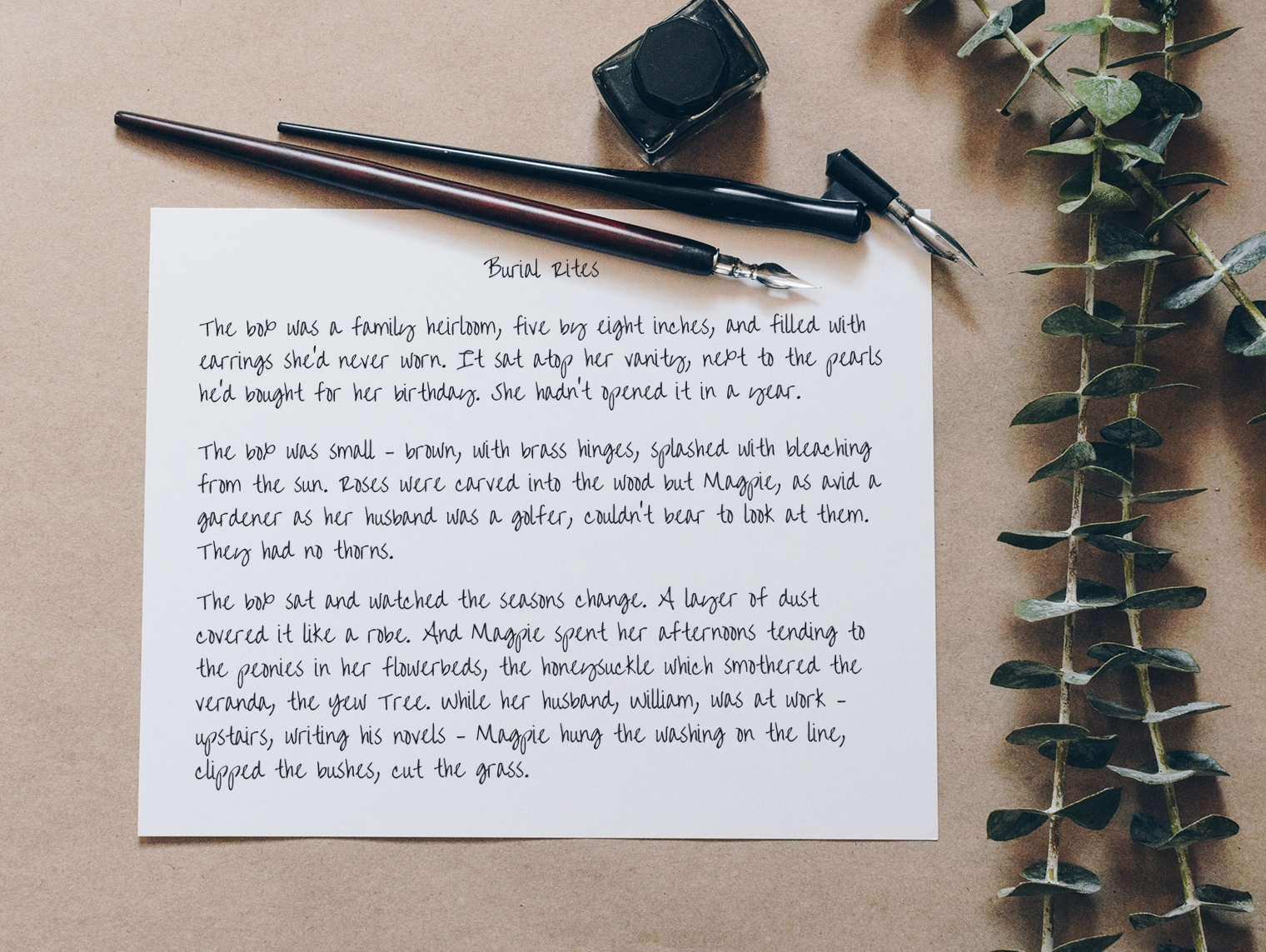
Congratulations on winning Zealous Stories: Short Story! Burial Rites is a story about a married couple’s relationship, about grief and how suspected infidelity can alter and plague behaviour — but it’s also a story about the necessity of writing. Tell me, when and how did you have the idea to write this story?
The idea for this story came about a few months ago after clearing out my wardrobe where I found an old jewellery box. It was only written recently because I was unsure about how to approach it. I like my work to have a certain universality – so everyone can connect with it on one level or another – which is why I wanted to tackle broad themes like infidelity and grief. The story has really helped me work through my own grief and has reminded me, much like Magpie is reminded, of why we write in the first place: we write because we need to, because it can help us come to terms with difficult truths.
The main character of Burial Rites is called Magpie. Throughout the story, you reference her bird like behaviours, the ‘tap-tapping’ of the husband’s typewriter, and Magpie’s collection of iridescent metals, the jewellery inside her box, and indeed her own thoughts, seem reminiscent of the magpie’s reputation for hoarding shining objects. Do you often look to nature as the source of your stories?
I think nature inspires me without me knowing it. I spent my childhood on a farm in France, so I think nature has always been part of my work, only I don’t realise that until I’m at the editing stage. Rather than looking for nature, nature seems to find me.
At the end of Burial Rites, Magpie and her husband bury her thoughts beneath the garden soil — you write ‘…her mind was clear. Her body was free’ — would you describe the process of writing as a similar type of release?
In a way, yes. But I think it depends on the story. Sometimes, you might write something that you get too caught up in and it drags you down – I’ve found that when tackling my semi-autobiographical novel. But in the case of Burial Rites, writing that has helped me come to terms with loss and helped me realised what I need to do to start letting go of that pain.
Have you ever experimented with story-telling in a medium other than writing? If so, what? If not, would you one day like to?
I’ve tried my hand at art, but I am nowhere near patient enough to use it as a storytelling medium! Music, however, has been an effective way for me to tell stories without saying a word. I like to compose in my spare time, and I enjoy finding those chord progressions which help the listener construct a narrative. In the future, I’d like to rekindle my tenuous friendship with art and this time, not expect to be Picasso after three minutes of staring at a canvas.
You write poetry as well as prose. What comes first? Do you see these as inter-related writing processes or do you treat them separately?
When it comes to writing, I don’t have a ‘one true love’. Often, I might be writing a novel and wonder how one of the chapters would look as a poem, so there are constant cross-overs. I’ve always wanted to be a published author, ever since I was four, so I treat poetry and prose with equal importance.
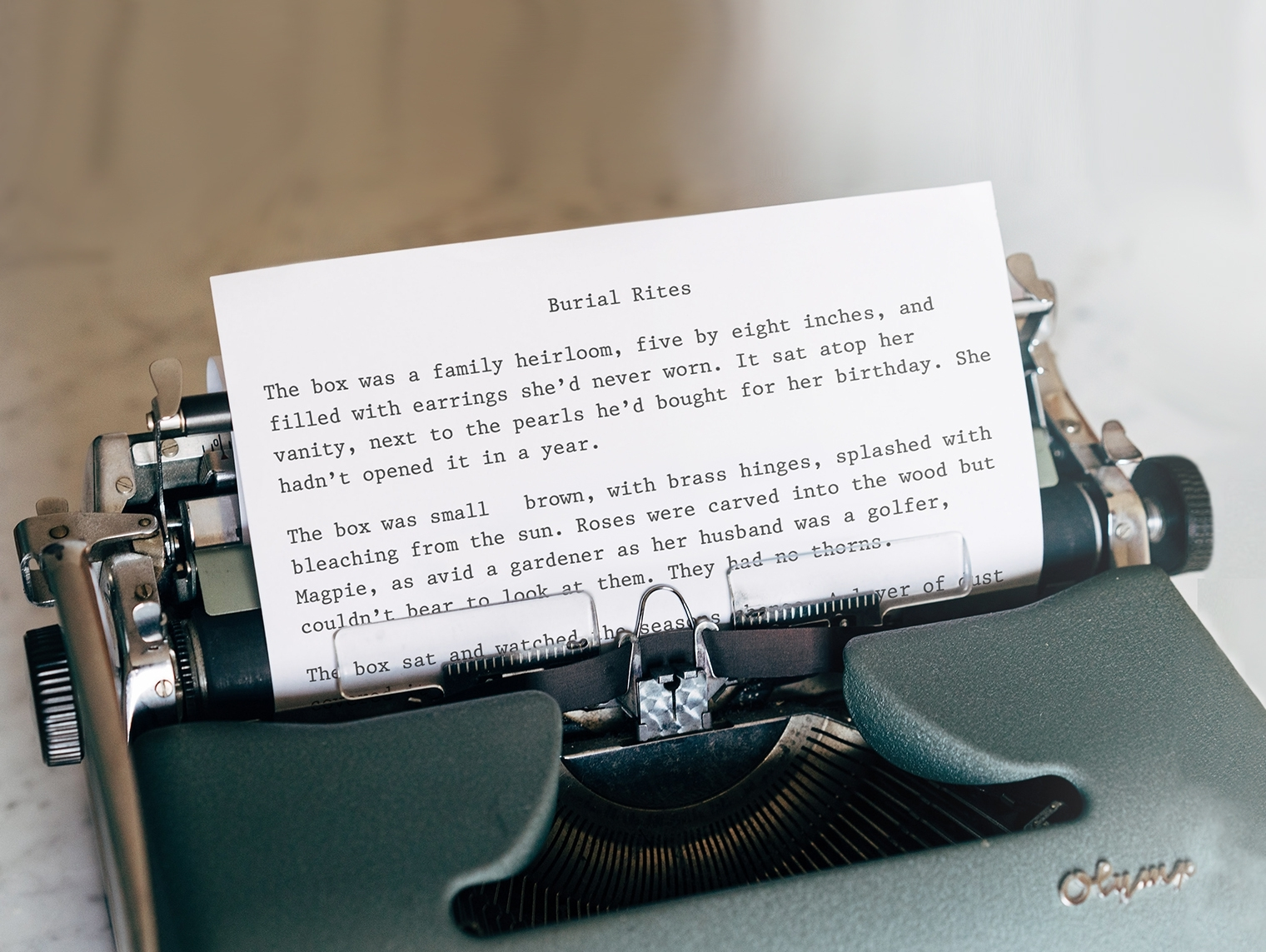
Is there anything essential to your writing process? Do you have a routine?
Routine? What routine? In all seriousness, my writing process is constantly shifting. I’ll have days where I wake up at dawn and get my best writing done. And then there are days when I have many other commitments (for example, I’m just starting my second year of university) so I’ll create a writing schedule to fit around my studies. Other days, I am the embodiment of chaos. If you ask my friends and family, they’ll say I’m the most irritating person to hang out with as I’m always writing: I write in restaurants, in the car, at birthdays, christenings and weddings. Essentially, all I need is a notebook, a pen, and a good cup of tea.
Are there any writers who have influenced you?
It would be impossible to list them all. If I had to name a few, I’d say Tiffany McDaniel; her work is so visceral, and her recent novel, Betty, has haunted me for several months now. Elizabeth Gaskell has greatly inspired me as a writer as well. Her work has encouraged me to not see my background as an obstacle – not only am I proud of it, I enjoy writing about it.
What would you say has been your most valuable lesson as a writer so far? What one piece of advice would you offer to someone starting their writing career?
Don’t lose the fun. One thing I’ve noticed, and I’m still trying not to do it, is that I’m pigeonholing my writing to suit certain people which means I end up forcing myself to write novels or stories that I’m not passionate about. Simply, don’t do that. The best writing you produce is what you write for yourself and what you are proud to create. It’s what you produce for fun and because you want to produce it – not just because you want to see something published.
What are you currently working on? Do you have any plans for a new short story?
Currently, I have too many fingers in too many pies. I’m always writing. At the moment, I’m working on a poetry collection, two novels (a literary novel and a Young Adult fantasy) and a story about a pair of antlers, a derelict house, and a grandmother who lives in a shed and I’ll leave it at that.
Let us know you want us to write more content like this with a love!
Share
Authors
